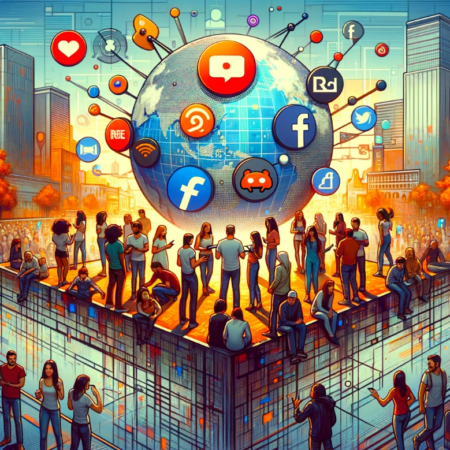In a world increasingly driven by technology, the human desire for connection remains paramount. We crave a sense of belonging, a shared space where we can interact with like-minded individuals and find support for our passions. Enter social media, a powerful tool that has reshaped the landscape of community building. This digital arena transcends geographical boundaries, fostering vibrant online communities for a diverse range of individuals.
The importance of social media for community building lies in its ability to connect people based on shared interests, experiences, or backgrounds. Unlike traditional community spaces, social media platforms are not limited by physical location. Whether you’re a passionate baker in a remote village or a crypto enthusiast in a bustling metropolis, social media allows you to connect with others who share your interests. Facebook groups, Reddit communities, and Discord servers create virtual spaces where individuals can engage in meaningful conversations, share knowledge, and foster a sense of camaraderie.
This digital bridge-building fosters several key opportunities for establishing new communities. Social media platforms provide a low-barrier entry point for individuals to explore their interests and connect with others who share their passions. Gone are the days of scouring local bulletin boards or relying on chance encounters. Niche communities can flourish online, offering a safe space for individuals with unique interests to connect and build a support network.
For existing communities, social media offers a powerful tool for communication, collaboration, and strengthening bonds. Alumni associations can utilize Facebook groups to reconnect with former classmates, share updates, and organize reunions. Local community centers can leverage social media platforms to announce events, engage with residents, and foster a stronger sense of belonging within the neighborhood. Social media allows for real-time communication, enabling members to stay connected and informed on community matters.
Furthermore, social media empowers communities by facilitating knowledge sharing and collaboration. Online forums allow members to share expertise, troubleshoot problems, and learn from each other’s experiences. This collaborative environment fosters innovation and problem-solving, allowing communities to collectively address challenges and work towards shared goals.
The opportunities for community building extend beyond simply connecting individuals. Social media empowers communities to advocate for causes they care about. Online petitions, fundraising campaigns, and social media trends can raise awareness on important issues and mobilize large groups of people to take action. For example, social media played a crucial role in the Black Lives Matter movement, providing a platform for amplifying voices and mobilizing people around the world.
However, it’s important to acknowledge the potential downsides of online communities. Social media can create echo chambers, where individuals are primarily exposed to content that reinforces their existing beliefs. This can lead to polarization and a decline in civil discourse. Additionally, the anonymity offered by online platforms can embolden negativity and cyberbullying.
Here’s where the concept of digital wellbeing comes into play. To maximize the positive impact of social media on community building, it’s crucial to cultivate a healthy online environment. Platforms can implement features that promote respectful dialogue and flag potential harassment. Individuals can also contribute to building a positive online space by being mindful of their interactions, fostering constructive conversations, and reporting negativity.
Looking towards the future, the community building function of social media presents exciting opportunities for digital wellbeing. As online communities grow and evolve, they can become powerful resources for promoting mental health and well-being. Support groups for individuals struggling with similar challenges can offer a safe space for peer-to-peer support and encouragement. Online fitness communities can motivate individuals to stay active and healthy.
In conclusion, social media has fundamentally transformed the landscape of community building. It offers a platform for connection, collaboration, and advocacy, empowering individuals to find their place in the digital world. By fostering a healthy online environment and being mindful of digital wellbeing, we can leverage the power of social media to build vibrant communities that enrich our lives and contribute to a more connected world.

